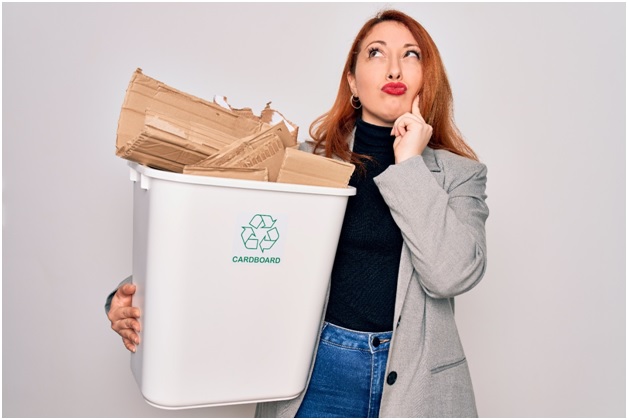Changing filters is a crucial part of a home furnace tune-up plan, and you should make the change multiple times a year to ensure you enjoy the best indoor air quality. With the many changes every year, you may be wondering whether or not furnace filters are recyclable.
Are they recyclable? What are the potential advantages and downsides to recycling furnace filters? Find out more in the following article.
Can You Recycle Furnace Filters?
Furnace filters are made from the woven fibers of synthetic materials such as polyester and fiberglass. Both of these materials do a great job of keeping out dust and other particles.
Most furnace filters are the disposable kind. This is because, even though the cardboard frame of your filter is recyclable, the other components are not. Fiberglass is not easily recyclable, so you shouldn’t expect to recycle your furnace filters if they are made from this material.
Think of how much dust, dirt and other trapped debris you risk releasing as you try to tear apart the frame of the filters for recycling. You also risk hurting yourself since you can cut yourself as you try to cut out the frame.
Short answer, no. You cannot recycle furnace filters, and the best thing to do for your home furnace tune-up is to replace the used filters with new ones often.
Proper Disposal and Other Options
The right way to dispose of your used furnace filters is to throw them in the trash. They will be collected alongside other trash and dumped at the landfill.
For a homeowner concerned about sending one too many furnace filters to the landfill at the end of every home furnace tune-up, your options are quite limited since these filters will not be recycled at the typical recycling stations. Some HVAC companies and suppliers do accept used filters for proper disposal, so you may want to do your research on the same.
If you are very keen on the idea of recycling, then you can go ahead and find local sites and companies which accept used furnace filters for specialty recycling. You may be able to find recycling companies in your area that will send prepaid mailers to your home to send your used furnace filters for recycling.
The Reusable Filters Option
There are reusable furnace filters, also known as washable filters, available in the market. These are made with a plastic or aluminum frame and with proper maintenance, can last up to several years. These filters are quite eco-friendly as you only need to wash them, instead of replacing them every few months.
Washable furnace filters do cost more upfront compared to the disposable type. Cost aside, the biggest concern is, of course, their efficiency. HVAC experts argue that while these filters are just as effective in keeping out pollen and other allergens, they may cause problems with the airflow across the heat exchanger and indoor evap coil. All may agree that how well you care and maintain reusable filters will determine how well they keep out bacteria and viruses.
It’s crucial to ensure that the filters are completely dry before putting them back into the furnace. A wet filter provides the perfect breeding ground for disease-causing mold, bacteria and viruses. For the best outcome, ensure that you clean out your reusable filters every month, failure to do so will result in the media inside breaking down.
Disposable over Reusable
Talk to an HVAC expert before going with reusable filters for your furnace. You will get insights on whether or not it is the best option for you, the best type to buy, what to expect, and of course, how to care for these filters going forward.
That said, industry experts insist that you can never go wrong with a high-quality MERV 8-16 disposable air filter. Disposable air filters typically have a higher MERV rating compared to their reusable counterparts.
If you keep up with your home furnace tune-up plan and replace your filters as often as you should, then you can look forward to enjoying good indoor air quality. Keeping dust and dirt out of your system will help to extend the life of your furnace.Clogged air filters disrupt proper airflow, which may lead to overheating and premature failure.
You Choose
Are you ready to do the work and find a company providing specialty recycling for used furnace filters? If yes, then go ahead and do so as recycling is always good for the environment.
You also get to pick between disposable and reusable furnace filters. There are pros and cons to each category, and you will need to consider this information when making your decision.
Either way, be sure to ask for professional advice and recommendations from an HVAC expert on this and anything related to your furnace tune-up.

